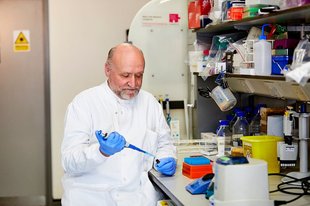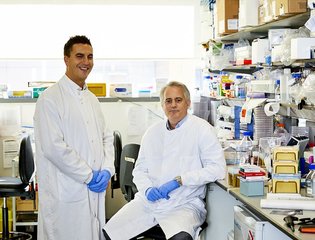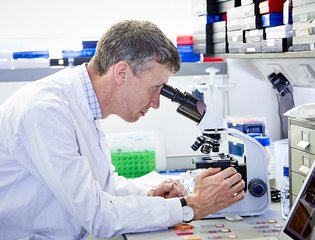Why do some ovarian cancer tumours become resistant to chemotherapy?

Professor Bob Brown
Lead researcher: Professor Bob Brown
Where: Ovarian Cancer Action Research Centre incorporating The Vivienne Wohl Unit
Theme: Treatment
Chemotherapy is a very effective treatment for women with ovarian cancer when they are first diagnosed. However in 70-90% of cases, the cancer will reoccur, often having developed a resistance to chemotherapy so that it no longer works. Understanding why this happens and finding a way to stop it is essential if we’re to make sure that women with recurrent ovarian cancer have better treatment options available to them.
Professor Bob Brown has been studying how recurrent ovarian cancer tumours develop resistance to chemotherapy to try to find a way to stop this from happening. His lab has already discovered that epigenetic changes that occur during chemotherapy can have many effects on the tumour – including switching off genes that are meant stop tumour growth.
He now believes that some of these changes can be used to our advantage to make the tumour more sensitive to new drugs or immune therapies. Professor Brown and his team will examine patterns in tumour samples from patients whose cancer has reoccurred and study whether new epigenetic treatments can prevent resistance from happening in the first place.
Ultimately Professor Brown aims to identify how new treatments for recurrent ovarian cancer can be developed so that patients receive the most effective treatments at the right time.
Where are we now?
Professor Bob secured follow-up funding from academia and industry to work on a drug compound studied during his OCA-funded research. He will aim to get this ready for clinical trials within the near future.

